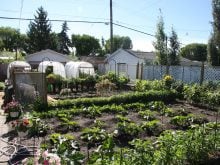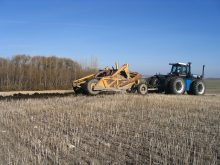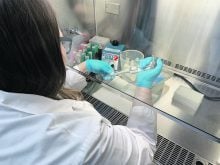A program designed to address the labour deficit in Saskatchewan’s agriculture sector will begin this June.
The Automation and Digital Agriculture Specialist Program is run by Palette Skills, a national non-profit organization, with support from the University of Saskatchewan.
The program is designed to equip people, who already have some post-secondary education, with the skills required for jobs in the agricultural industry, said Ednali Zehavi, program manager at Palette Skills.
To be eligible for the program “you have to be resident of Saskatchewan, you have to be eligible to work in Saskatchewan, and you need to have at least some courses at the level of university or college in statistics in order to understand deeper the issues like machine learning,” Zehavi said.
Read Also

House ag committee to undertake several studies
The House of Commons standing agriculture committee has set its agenda for the coming months. Members began the fall sitting with a two-hour update on international trade
So far, all applicants are immigrants, who are educated but have little or no background in agriculture.
Zehavi said the Automation and Digital Agriculture Specialist Program will help people who are underemployed in another sector fill labour needs in agriculture.
“For example, one of the people that we interviewed has a lot of experience, he has a master’s degree in economics, and he’s also a programmer. He’s a data scientist. When he finished university here as an international student and became a permanent resident, he couldn’t find a job and was underemployed in another sector,” Zehavi said.
The course is hybrid, with some of it delivered online with a face-to-face component at participating businesses in the province where labs will be held.
The coursework was designed through consultations with 15 Saskatchewan Ag businesses, including service companies.
“One company told us to get someone from outside the industry and to train them on agriculture and to understand all the supply chain and the specific understanding of farms in farm management, it takes them about six months. They perceive this as a high risk because it takes a lot of money,” Zehavi said.
The course work includes lessons on geographic information systems, internet of things, smart farming technology, unmanned aerial vehicles, artificial intelligence, robotics, sensors, and big data.
“We’re diving deep into the technical for some of those modules and then later we’re going to discuss business management,” Zehavi said.
“We’re taking in consideration that those applicants come already with a lot of skills and knowledge from before, so it’s not someone that comes with absolutely no knowledge and no skills straight from high school.”
A part of the Automation and Digital Agriculture Specialist Program deals with non-technical skills such as project management, business development, teamwork and collaboration, problem-solving, and job readiness.
Zehavi said a goal of the program is to achieve 90 percent employment of students in the ag sector in Saskatchewan.
“Fifty percent of this program specifically is to target under-represented communities such as Indigenous, newcomers, international women and other under-represented groups,” she said.
Protein Industries Canada, a federal government-backed protein industry development group, covers the cost of the program.
“The cost to us is between $5,000 to 8,000 for each participant, but we’re charging only a $150 registration fee to cover the registration costs. Everything else is thanks to Protein Industries Canada.”
Palette Skills is a non-profit agency also funded by the federal government.
Winnipeg-based non-profit Enterprise Machine Intelligence and Learning Initiative helped design the program.
The University of Saskatchewan also helped with the program’s design and industry engagement, said Trever Crowe, associate dean of research and graduate studies at the College of Agriculture and Bioresources.
“The service industry is a primary target where you might need support in the form of aerial photos, support in helping to make fertilizer application predictions, seed type selection, all those things that need data to help to support that decision making, that’s really that the focus of the program,” Crowe said.
He said many of the skills covered in the Palette Skills program are also covered in a new degree-level certificate in precision agriculture that is being shuffled through the university approval system.
The Automation and Digital Agriculture Specialist Program runs for 130 hours over eight weeks.
Online registration has started for the first of two cohorts that are expected to be held over the next year.
The first cohort begins June 6, and the second cohort begins next March.


















